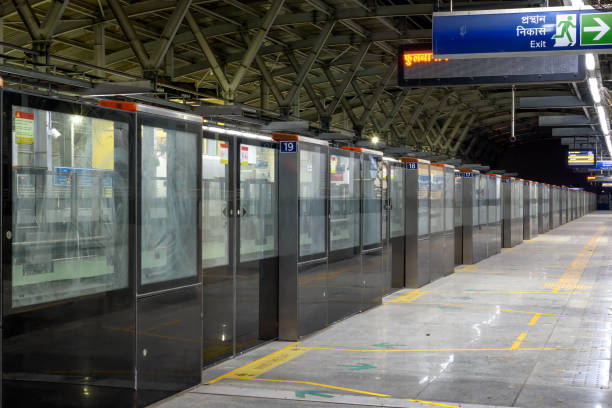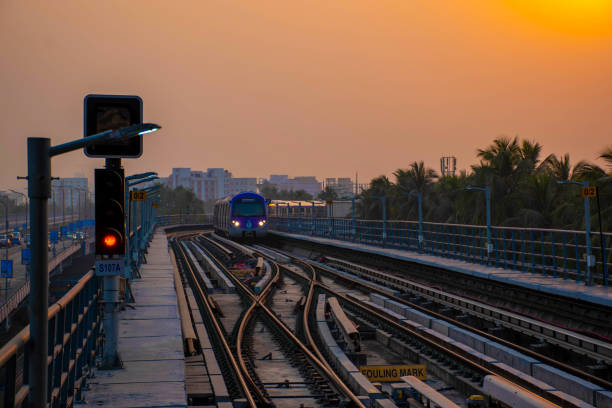Communication of the benefits of East West Rail (EWR) will focus on the economic prospects for the region resulting from the work rather than the journey time benefits required by the Department for Transport business case documents. UK Infrastructure Bank non-executive director Bridget Rosewell, who was a commissioner for the National Infrastructure Commission until January this year, said at an Westminster Forum event on Next steps for the Oxford to Cambridge region that EWR had learned lessons from how High Speed 2 (HS2) handled the business case data. Rosewell said: “HS2 did indeed lose the publicity battle – and I did warn them about this in 2005 – that if you say its about saving 20 minutes on the trip to Birmingham, you will lose. However, those are the transport criteria [needed for the Department for Transport (DfT) business case] and it is not about capacity, it is not about jobs or any of the things that you think a business case should be about.” According to Rosewell, communicating the regional benefits of the project is why the early stages of EWR were named CaMkOx to reflect the connection from Cambridge to Milton Keynes to Oxford. “We needed to make sure that the link was not just about Oxford to Cambridge trips,” she said. “You need to make sure that this is being presented as how we make an effective labour market beyond just academics.” Roswell explained that the business case documents required by DfT for infrastructure projects are not the same as those developed by businesses for a new project. Roswell’s comments were just days after Chancellor Jeremy Hunt confirmed that a decision on the route for EWR final section between Bedford and Cambridge will be announced in May. Also speaking at the event, EWR head of communications Hannah Staunton explained that the business case document for DfT for EWR will not be published at the same time as the route announcement in May.

“The Business Case For a Project Like This is a very Specific.
set of documents that is created over a long time with a very rigid process that is applied by government, so we do not expect the business to be published at the same time as the route announcement,” explained Staunton. “What we will keep doing is making the case as it grows and that is done over a number of years . The route that you take will impact on the business case. “Ultimately the business case document is owned by DfT and it will be up to them when – and if – they choose to publish it.” During the session Staunton also gave an update on progress on the project. “We have made substantial progress on connection stage 1 – the section that is currently being built from Bicester to Milton Keynes and towards Bedford,” she said. “The earthworks are now complete which is a really major milestone for us and tracklaying is now underway.

21 MAR, 2023 BY CLAIRE SMITH
Communication of the benefits of East West Rail (EWR) will focus on the economic prospects for the region resulting from the work rather than the journey time benefits required by the Department for Transport business case documents. UK Infrastructure Bank non-executive director Bridget Rosewell, who was a commissioner for the National Infrastructure Commission until January this year, said at an Westminster Forum event on Next steps for the Oxford to Cambridge region that EWR had learned lessons from how High Speed 2 (HS2) handled the business case data. Rosewell said: “HS2 did indeed lose the publicity battle – and I did warn them about this in 2005 – that if you say its about saving 20 minutes on the trip to Birmingham, you will lose. However, those are the transport criteria [needed for the Department for Transport (DfT) business case] and it is not about capacity, it is not about jobs or any of the things that you think a business case should be about.” According to Rosewell, communicating the regional benefits of the project is why the early stages of EWR were named CaMkOx to reflect the connection from Cambridge to Milton Keynes to Oxford. “We needed to make sure that the link was not just about Oxford to Cambridge trips,” she said. “You need to make sure that this is being presented as how we make an effective labour market beyond just academics.” Roswell explained that the business case documents required by DfT for infrastructure projects are not the same as those developed by businesses for a new project. Roswell’s comments were just days after Chancellor Jeremy Hunt confirmed that a decision on the route for EWR final section between Bedford and Cambridge will be announced in May. Also speaking at the event, EWR head of communications Hannah Staunton explained that the business case document for DfT for EWR will not be published at the same time as the route announcement in May. “The business case for a project like this is a very specific set of documents that is created over a long time with a very rigid process that is applied by government, so we do not expect the business to be published at the same time as the route announcement,” explained Staunton. “What we will keep doing is making the case as it grows and that is done over a number of years . The route that you take will impact on the business case. “Ultimately the business case document is owned by DfT and it will be up to them when – and if – they choose to publish it.” During the session Staunton also gave an update on progress on the project. “We have made substantial progress on connection stage 1 – the section that is currently being built from Bicester to Milton Keynes and towards Bedford,” she said. “The earthworks are now complete which is a really major milestone for us and tracklaying is now underway. “We are aiming to get passenger services from Oxford to Milton Keynes up and running by 2025.” Staunton added that detailed planning for connection stages 2 and 3 is underway and is where there is “considerable public engagement” in progress at the moment. She said that everyone is now working towards the May deadline for announcing the final route but she said she was unable to confirm exactly when in May the announcement will be made.


Recent Comments